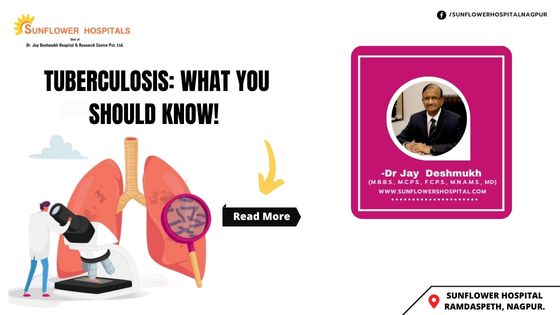Why is the prevalence of tuberculosis still high in most developing countries, including India?
The major challenges are lack of awareness, ignorance, poor notification, and drug resistance. People still feel that it affects only the poor and underprivileged.
What are the main results of the campaign against tuberculosis?
Through global efforts, including a major contribution from India, 74 million lives have been saved since 2000. However, 10.6 million people were affected by Tuberculosis in 2021 and 1.6 million people died due to tuberculosis in 2021.
Which organs are affected by tuberculosis?
Almost any organ can be affected. This involves the lungs, lymph nodes, brain, heart, kidneys, intestines, reproductive organs, bones, skin, joints, and skin. Perhaps, except for hair and nails, any organ can be involved.
Why is the diagnosis difficult at times?
The symptoms of tuberculosis may mimic many other medical illnesses. However, low-grade fever, body aches, weight loss, and easy fatiguability are common. Otherwise, the symptoms depend on the organ involved. This may include constant cough, fever, blood in sputum, and weight loss. Many individuals with tuberculosis may not have any symptoms at all in the early stages.
What are the risk factors for contracting tuberculosis?
The commonest is a person with open tuberculosis, spreading the illness to others by constant coughing. Individuals with TB bacteria in their sputum are the commonest spreaders of tuberculosis. Those with decreased immunity are more vulner-Tuberculosis is a bacterial disease and is one of ten major causes of death worldwide. On 24th March 1882 Dr. Robert Koch amazed the world when he discovered the cause of Tuberculosis. This opened the way for diagnosing and curing tuberculosis.
Able. This includes those who consume alcohol on a daily basis with poor nutrition, HIV infection, very elderly with poor nutrition, and diabetics. Those on long-term steroids are also vulnerable.
What is the government doing to eradicate tuberculosis?
By the end of 2025, the government is expecting to eradicate tuberculosis completely from India. Though this seems challenging, it requires support from people at large. Treatment for tuberculosis, including investigations and medications, is provided free of charge by our government. Economic support for better nutrition is also provided by the government. People should cooperate in this matter.
What is the responsibility of those affected by tuberculosis?
Treatment should be completed without any breaks. Most of the time the course is of 6 months. In some, like those with HIV or those with bone or joint tuberculosis, the treatment may be for 9 months to 18 months. Covering the face with a mask, and treating other illnesses like diabetes and HIV concurrently, is important. Proper follow-up with your doctor is essential.
What about the side effects of medications and discontinued treatment?
This can be difficult for the patient. Modification in treatment is done. However, some form of therapy against tuberculosis is always considered. The incidence of side effects is always very low. Having blood tested for liver functions and Uric acid is suggested in the early phase of treatment.
How common is tuberculosis?
There is not a single family in India which has been spared by tuberculosis. It does not spare the rich and famous as well. Early diagnosis and completion of the course of treatment are necessary. Low-grade fever lasting for more than a week, unexplained weakness and weight loss, persistent cough, and lymph node enlargement should alert you. Tuberculosis does not spare any organ or any person irrespective of caste, creed, religion and economic status, and age. Prompt diagnosis and compliance is the key to eradicating this disease.
Author: Dr Jay Deshmukh
Dr Jay Deshmukh is Chief Physician and Director, Sunflower Hospital, Nagpur Honorary Physician to Honorable Governor of Maharashtra and PondicherryCentral. Dr Jay Deshmukh is an M.B.B.S., M.C.P.S., F.C.P.S., M.N.A.M.S., MD From Internal Medicine – Bombay and New Delhi.


